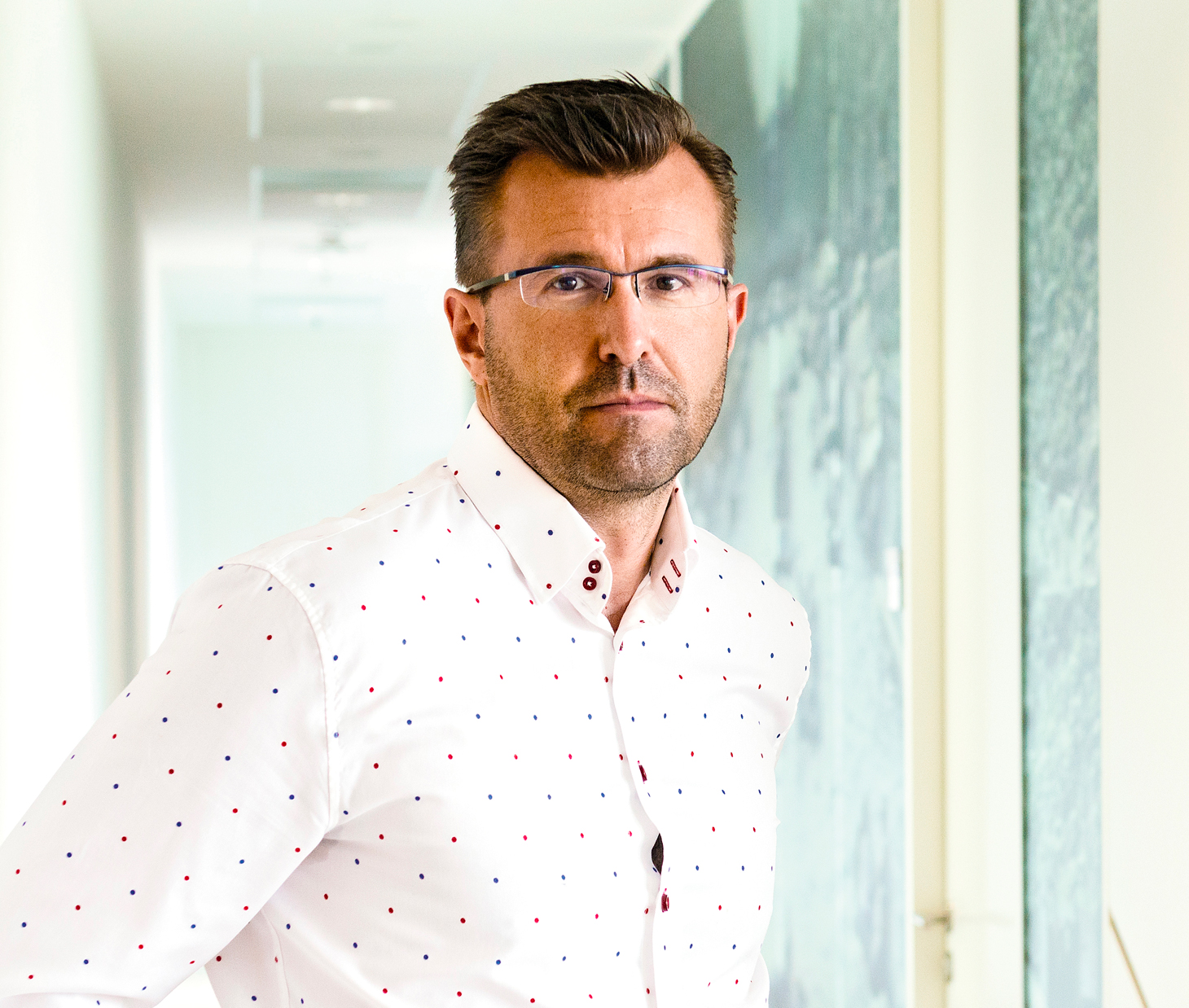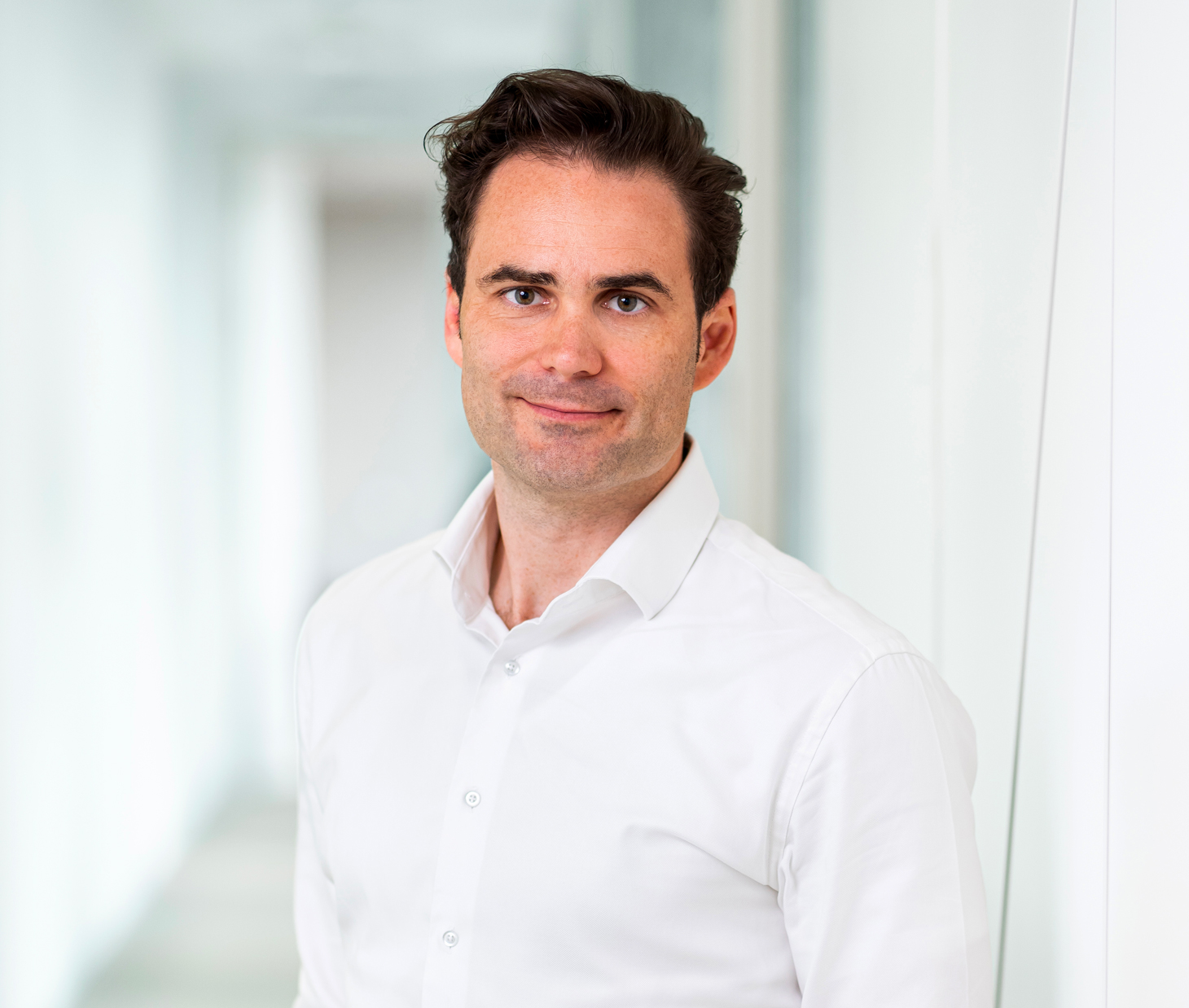They are almost invisible, but business could not function without them. Lawyers active in the world of start-ups are behind every announced investment round, sale or acquisition, stock market entry and expansion into foreign markets. But the list is far from over. HAVEL & PARTNERS, the largest law firm in the Czech Republic, is well aware of all of this and is increasingly interested in start-ups.
In an interview for CzechCrunch, Jaroslav Havel, joined by Václav Audes, discuss the current events in the start-up world, which is buffeted by an investment storm and cooling-down, their investments in start-ups, international comparison and the specific aspects of this branch of law.
We strive to offer a comprehensive approach, i.e. law in the broadest extent, including taxes, regulatory and legislative matters, whether local, EU or US.

Jaroslav Havel

Václav Audes
There have been reports coming from the United States for some time now that the volume and number of investments in start-ups has been declining, as have negotiated valuations. We are already seeing some indications of this in the Czech Republic. How do you perceive the situation as lawyers who are behind these transactions?
Václav Audes (VA): In terms of the number of transactions that we deal with directly, we have not yet observed any decrease in market dynamics. On the contrary, in some areas the intense interest from last year has continued this year. We see this, for example, in the crypto world and blockchain or artificial intelligence. In the long term, there is also great interest in investments in fintech, and e-commerce and gaming are also developing dynamically.
How many transactions do you process in general?
Jaroslav Havel (JH): On average, it is one transaction per week. We handle everything from the smallest, i.e. pre-seed and seed rounds, where we typically represent venture capital funds and angel investors, to the more advanced Series A, B and C stages, which we have tried with Rohlík, for example. Tomáš Čupr is a long-time client of ours, and we have represented Rohlík as a company in all of its rounds.
Although you do not see less dynamics in transactions concluded, do you see any changes happening in the venture capital market?
VA: From an international perspective, we can already see that many investors, mainly from Western Europe and the US, have moved into the ‘wait and see’ mode. The most common reasons are inflation and the rising costs of developing or operating start-ups. In addition, for investors operating in Central Europe, the geopolitical risk has increased due to the situation in Ukraine, which they have to take into account.
JH: On the other hand, this cooling-down occurred in late February and early March. Now the geopolitical risk is no longer a big issue. For example, one of our Czech clients continues to invest with a Scandinavian fund, which postponed all investments to the second half of the year in February. However, it eventually reconsidered its position and started reinvesting. We therefore expect that the geopolitical aspect will not be so crucial. What will continue to play a role, however, are rising energy prices and inflation, or high interest rates on loans denominated in Czech crowns.
Will the current events from the US venture capital market spill over into the Czech Republic, or is the Czech Republic immune because the scene is more ‘reasonable’ and perhaps not as developed as in the West?
JH: It is true that in recent years even the largest American funds such as Sequoia, Index or Tiger have focused their attention on our region, because the quality and global scale of start-ups is growing here. At the same time, their valuations were – and still are – at a reasonable level compared to those in the US. If I overstate it, the valuation of an idea without commercial traction and sales in the US can be equal to the valuation of established companies that actually have products and sell them. From our perspective, it is a diametrically different world.
It is important that start-ups are created here that are able to think globally. Many start-ups look at their potential through the lens of the Czech-Slovak market, which is less interesting from the perspective of a foreign investor.
What do you think our ecosystem lacks compared to the West?
VA: For example, cooperation between angel investors, who focus on the earliest stages of companies, and organisations that bring founders together are important. Such initiatives have emerged in our country only recently, but it is a step in the right direction. And it is extremely important that there are functional start-ups that are able to surround themselves with the right people and think truly globally. It is still true that many start-ups here look at their potential through the lens of the Czech and Slovak market, which is logically less interesting from the perspective of a foreign investor. From their perspective, it is also important to have the right legislative structure.
What do you mean?
JH: Early investments are typically always made by local investors, while later rounds are usually sought by start-ups abroad. To be attractive to international investors, they often have to have a properly built structure, because, with a few exceptions, foreign investors in later stages (especially A series and beyond) typically will not want to invest in a Czech or Slovak limited liability company.
Particularly at the beginning, start-ups try to save where they can, and for example legal services can be relatively expensive...
VA: In both the Czech Republic and Slovakia, lawyers are often cut back, and you are right that this is even more so in smaller companies and start-ups, which are mostly run by young people. A firm like ours can offer an alternative fee structure in such cases. In the West, it is a common practice, for example, to reduce rates and get a share of the success in return. Subject, of course, to the rules of the legal practice. Owners of law firms often have a separate ‘venture capital’ company set up through which they enter start-ups directly. As a result, the lawyers receive a portion of their fee in the form of a stake in the company or a payout as part of the next investment round.
Is this the way you also invest in start-ups?
JH: I personally made my first investment in the first Credo Ventures fund back in 2008. At that time, it was the first fund that could be invested in this way. Then we invested, either myself or jointly with my colleagues within the firm, in several other funds through similar structures. This allows us to appreciate the wealth we have earned through the provision of legal services in an environment that is close to us and shared with our clients.
How much do you invest?
JH: The amounts are not very material; in general, we have invested several millions of Czech crowns in venture capital funds, exceptionally once over ten million. We try to keep it reasonable. In venture capital funds, there is often an exemption for a lower mandatory minimum investment for legal, tax and other advisors who bring intellectual capital with added value to the funds in addition to money.
VA: Thanks to this, we can invest even smaller amounts in the funds than the minimum deposit for traditional investors. The funds see us as more motivated to help them find potential start-ups to invest in or, for other rounds and exits, to find their way to more potential investors and buyers. There is a logical intersection.
Which funds or start-ups have you directly entered?
JH: In addition to Credo Ventures, I can also mention Lighthouse Ventures. When I put together my investments and those of my colleagues made through joint vehicles, together we are indirect co-owners of probably the largest number of start-ups in the Czech Republic and Slovakia, and in many cases in other countries in CEE or Western Europe. There are also several ‘unicorns’ among them. In total, it must be more than a hundred of such shareholdings. But often it is a small exposure in respect of the legal exemption I mentioned. Still, we are very pleased to be able to follow their successes and contribute to them.
VA: With start-ups, we also get to do immensely interesting work. For example, one of our clients, originally a Slovak technology company, is opening its own plant as it expands in the United States. This involves setting up a US entity, hiring employees, renting real estate, and having to pay taxes there. We helped them with all of that.
As a Czech company, however, you will understandably not be experts in US law and taxes. How do you proceed in such cases?
VA: We act as service coordinators; we have a wide international network of cooperating law firms. We contact foreign offices for assistance, they contact us for help for their clients. It is our international cooperation that we consider one of our biggest competitive advantages – we have the ability to help abroad not only in the transaction but also with day-to-day business matters. Given that we are a large firm even in a European context, it allows us to build long-term relationships as a regular client and we act as an equal partner abroad, at least in terms of the number of lawyers and the type of clients.
You mean US companies that operate here in the Czech Republic?
JH: Yes. When you look at the top of the US stock market, the vast majority of the companies that operate in our country are our clients. For example, Google’s parent company Alphabet, Facebook’s parent company Metaverse, Apple, Tesla, Microsoft. I dare say that more than 80% of them are our clients in the Czech Republic and Slovakia. You don’t have any other firm like us in Europe where the number one firm is so far ahead of the number two firm in terms of market share – clients, turnover, number of lawyers and reputation. And at the same time, we maintain and continue to strengthen this position – one thing is to grow, and another is to maintain that lead.
So you continue to grow?
JH: We are growing in terms of sales, profit, quality and specialisations. Thanks to this, we can ultimately inspire start-ups and advise funds. Fund managers have not typically gone through large companies, they have grown out of the investment environment. We are lawyers, but we are also managers – we have built a firm that currently has 500 people, 300 of whom are lawyers and advisors. And lawyers aren’t the easiest people to manage. (laughs) We have set up management, we understand law, tax, business development and marketing, we deal with a lot of HR issues. Therefore, we can also offer added value to entrepreneurs and managers in terms of business sustainability and corporate culture.
This interview was published on CzechCrunch, a Czech portal focusing on business, start-ups, technology and other current topics. The interview has been edited for length (note from the H&P Magazine editorial board).







